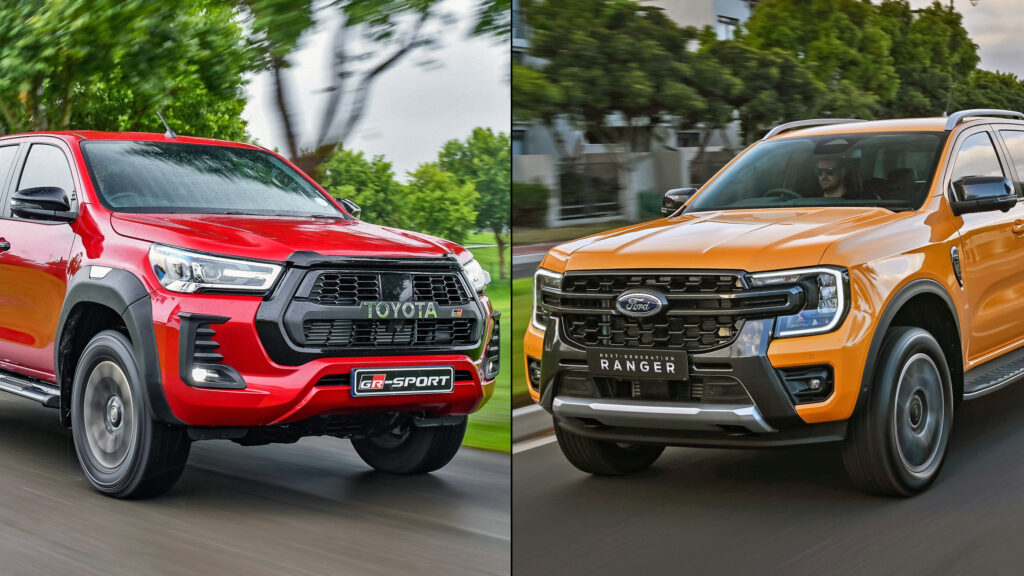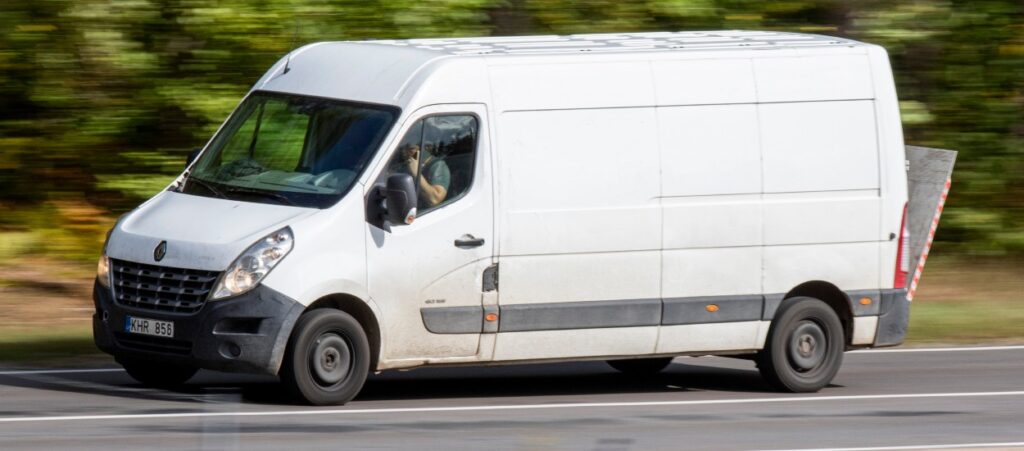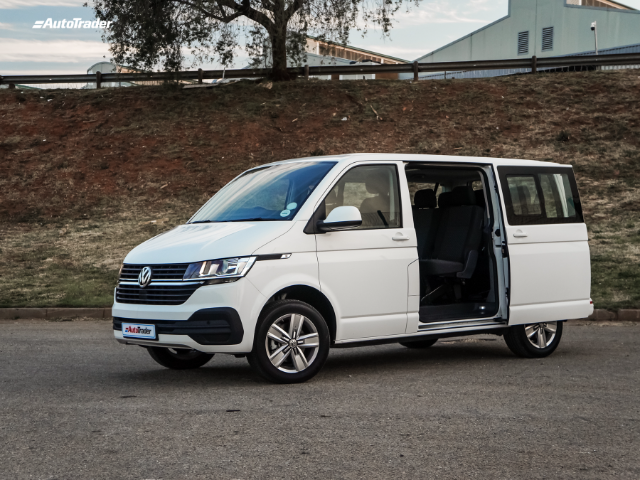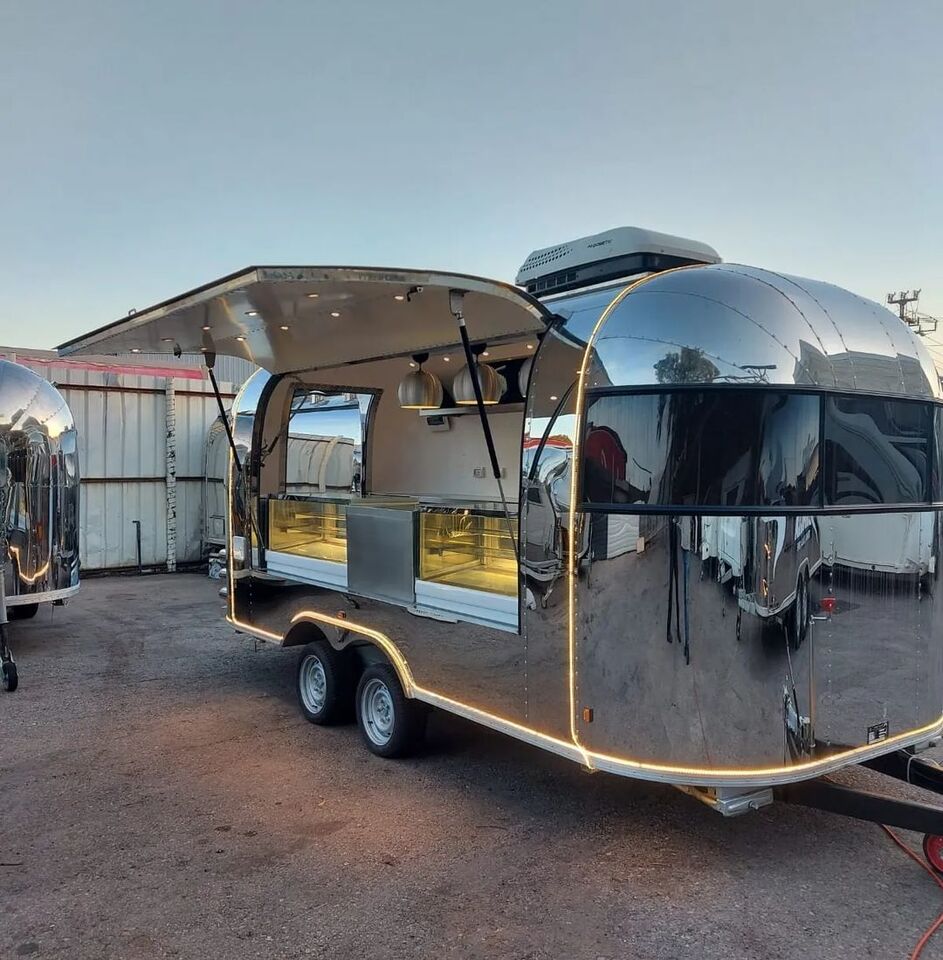Last updated on February 26th, 2024 at 09:25 am
Are you interested in a food truck in South Africa? In this guide, you will find the exact steps you can take now to start this lucrative business.
Table of Contents
Why a Food Truck Business is the Newest Hot Industry
In the past few years, food trucks have emerged as a new industry here in South Africa. They are growing in popularity and have been gaining momentum in the market.
There are various reasons for their success. For example, people can get a taste of something new or they can try something new while they are on the go. They also provide an opportunity for people to be creative and experiment with different foods.
The rising popularity of food trucks is not only because of their delicious dishes but also because they provide an opportunity for entrepreneurs to start a business with low start-up costs and high-profit margins.
The Right Way to go About Starting a Food Truck Business
Food trucks have become a popular way to start a business. In order to get the most out of your food truck, you need to know about the pricing of food trucks and how to manage them.
The right way to go about starting a food truck business is by first getting your hands dirty with the work that goes into it. You need to understand what it takes and what you will be responsible for before you can decide on how much money you want to make.
Here are the steps you can take now to start a food truck in South Africa;
1). Research Your Food Truck Scene
In order to do business in the food truck industry here in South Africa, you need to research how the market is doing. You can find out information about the existing market by doing research and gathering data from various sources.
Before you start a food truck business, it is essential that you understand the existing market and your customer’s needs. It is also important to be up-to-date with what your competitors are doing so that you can stay ahead of them by creating unique products.
Be sure to know the following before starting:
- Already existing food truck businesses and concepts in the area.
- Existing restaurant concepts
- The average demographic of the population
- Food trucks are now allowed to legally stop at specified locations around the city, make sure you know those locations.
- Identify busy streets with many pedestrians who are potential customers
2). Choose a Food Truck Concept
Now that you have done some research, the next step is to choose a food truck concept. There are many considerations that you will need to make when choosing this decision such as what type of cuisine you would like your business to specialize in, where would be best for your business, and what style would best suit your business’ image.
You may want to take into account the number of trucks in your area and also how many other food trucks would be competing with you. You may also want to consider whether or not there are any restrictions on where or when you can operate, and if there is a risk that your business might be banned from operating in certain areas.
Either way, make sure you are going for something that merges your passions and interests and solves existing community challenges.
3). Write a Food Truck Business Plan
Next on how to start a food truck in South Africa is a business plan.
A food truck business plan is a document that outlines the goals, strategies, and finances of a food business. It is used by entrepreneurs to help them determine if they have the resources, skills, and knowledge necessary to start their own food truck business.
Here is a simple food truck business plan template:
- An Executive Summary: This section should establish your company’s identity, lay out your goals, and depict what kind of food you want to sell and why.
- A Company Description: List why you would like to start up a food truck and how your business is different from the competition in this section.
- A Market Analysis: Use this section to explain which demographic your truck would cater to and who your target audience would be.
- An Organization and Management Plan: Lay out the employee ranks and your internal structure in this section to show a clear business organizational system.
- A Service or Product Line Description: You’ll want to provide your menu details and options for seasonal or future menu alterations.
- Marketing and Sales Strategies: Provide your advertising plan and different marketing tactics you plan on using to spread the word about your food truck.
- A Funding Request: Clearly identify where the funding for your truck will come from and how much you will need to get your business started.
- A Financial Projections: Here you’ll show your investors the projected growth and financial plan for your company’s future in the next 5 years.
- An Appendix: In this final section, you can add any additional information that did not make it into the plan, like photos, logo design, and blueprints.
Done?
You are ready for the next step on how to start a food truck in South Africa.
4). Get Funding for Your Food Truck
Now that you have a business plan, go ahead and get funding.
There are a lot of ways to get funding for your food truck, but they should not be the first step because there are many risks involved in that. First, you should have a business plan and then find investors.
Considering the costs that come with running a food truck business, it is likely that you will need to take out a loan in order to open a food truck if you want it to be profitable.
A good way to get funding is through crowdfunding. You can start by reaching out to friends, family members, and colleagues for help with your campaign.
You can also turn to the internet’s many crowdfunding platforms, including Kickstarter, Indiegogo, and GoFundMe. You might also visit your local government for grants.
Here are some of the most practical ways to get funds for your food truck in South Africa:
- Ask your family and friends to invest
- Go to community investors
- Apply for government small business loans
5). Get Food Truck Licenses and Permits
The process of getting a food truck license and a permit is a bit more complicated than just opening up a food truck. This is because it involves the city, state, and federal governments.
In order to get one of these licenses, you must be in compliance with all laws and regulations. You will also need to make sure that your business meets the health codes for your specific location.
It is important that you comply with all South African laws and regulations, which include municipal by-laws. The list of regulations includes the following:
- The Foodstuffs, Cosmetics and Disinfectants Act 54 of 1972
- Basic Conditions of Employment Act 75 of 1997
- Tax Law; SARS, VAT, Income Tax, Customs Tax,
- Companies Act 71 of 2008,
- Close Corporations Act 69 of 1984,
- Consumer Protection Act 68 of 2009 and the Competition Act 89 of 1998.
Also, to sell any foodstuff here in South Africa (not including unprocessed Agri products), you will need the Certificate of Acceptability. To get it, you must file an application with your local municipality.
As part of the application, before you get the certificate, the municipal environmental inspector will visit your food truck in South Africa and carry out an inspection.
6). Purchase Your Food Truck Equipment and Supplies
The next step to start a food truck in South Africa is to purchase your food truck equipment and supplies. Here is a list of the most important items that you will need.
- Food Truck – You can lease or buy one, which can be used or new, and then carry out some customizations.
- Cooking Equipment – Grills, ranges, fryers, microwaves, toasters
- Warming and Holding Equipment – Countertop food warmers, soup kettles, fry dump stations
- Food Prep Equipment – Worktables, chef knives, cutting boards, cookware, kitchen utensils, kitchen thermometers
- Serving Equipment – Disposable take-out supplies, food trays, napkins, cups, plastic cutlery
- Refrigeration Equipment – Prep tables, under-counter refrigeration, ice machines
- Janitorial Equipment – Handsinks, compartment sinks, floor mats, sanitizing chemicals, trash cans, recycling bins, floorcare products
Additionally, all food truck owners should acquire insurance for liability and physical damage, as well as professional liability insurance for the risk of your business in the event of an accident.
Once you have purchased a food truck in South Africa you will need to finalize your inspection and permits to be allowed on the street.
How much is a food truck in South Africa?
The cost of a food truck in South Africa can vary greatly depending on factors like:
1. New vs. Used:
- New: Brand new, custom-built food trucks can be quite expensive. Prices could range from R250,000 to upwards of R1,000,000 depending on size, features, and equipment.
- Used: You can sometimes find used food trucks or trailers at a significantly lower cost. Prices can vary greatly based on condition, age, and included equipment.
2. Size and Type:
- Small Trailers: Basic food trailers suitable for simple menus might start around R80,000 and go up depending on features.
- Large Trucks: Fully equipped trucks offer more space and amenities, naturally increasing the price.
- Kombi Conversions: Converting classic VW Kombis into food trucks is popular and can have a range of prices depending on the customization.
3. Equipment:
- The type and amount of kitchen equipment you need will significantly impact the price. Basic setups will be cheaper than those requiring specialized gear like ovens, fryers, refrigerators, etc.
Best trucks for food truck business in South Africa
Choosing the right truck is crucial for your food truck business in South Africa. Here’s a breakdown of some popular options, considering the country’s unique needs:
1. Bakkies (Pickup Trucks)

- Pros: Versatile, affordable, easy to maneuver, good for smaller operations or those with a mobile setup.
- Cons: Limited interior space, may require more external storage solutions.
- Popular Models:
- Toyota Hilux
- Isuzu D-Max
- Ford Ranger
2. Panel Vans

- Pros: Spacious interiors, customizable layouts, good weather protection
- Cons: Can be more expensive than bakkies, not as maneuverable in tight spaces.
- Popular Models:
- Toyota Quantum Panel Van
- Mercedes-Benz Sprinter
- Nissan NV350
3. Classic VW Kombi

- Pros: Unique aesthetic appeal, great for nostalgic branding, relatively compact.
- Cons: Often requires extensive renovation, limited space compared to larger vans.
4. Food Trailers

- Pros: Can be very affordable, towed by existing vehicle, customizable
- Cons: Requires a separate vehicle with towing capacity, less maneuverable than self-contained trucks.
Factors to Consider When Choosing
- Menu: The complexity of your menu will dictate the kitchen space and equipment you need.
- Budget: New trucks are more expensive than used or converted models. Trailers can be budget-friendly options.
- Mobility: If you plan to frequent events and festivals, a smaller truck or trailer might be better.
- Branding: Consider the overall aesthetic of the truck and how it aligns with your brand image.
Additional Tips
- Buy Used: Look for well-maintained used vehicles to save money.
- Renovate: Consider renovating older vehicles for a unique look and to fit your specific needs.
- Consult with Professionals: Get advice from food truck builders or experienced food truck operators in South Africa.
Where to Find Food Trucks for Sale in South Africa:
- Food Truck Manufacturers: Companies like Street Food Trucks (https://www.streetfoodtrucks.co.za/) specialize in building and customizing food trucks.
- Trailer Manufacturers: Companies like Diamond Trailers (https://diamondtrailers.co.za/food-trailers/) build food trailers that can be customized.
- Online Marketplaces: Websites like Gumtree, Facebook Marketplace, and OLX often have listings for used food trucks.
- Industry-Specific Websites: Some websites focus on the food truck industry and may have listings.
7). Marketing and Advertising
Now that your food truck business is ready, your next move is to invest in marketing and advertising to attract customers. There are many ways you can market your food truck business such as social media marketing, online marketing, print media marketing, television commercials, radio commercials, and more.
Marketing and advertising are important for any business to succeed. However, the process can be complicated and time-consuming.
Here are some of the best marketing strategies you can employ to get more customers to your food truck:
- Utilize social media: use the internet to get more people to your food truck.
- Have knowledge of your target market.
- Offer freebies and discounts for those who share their experience on social media.
- Utilize contests and give away prizes to those who share their experience on social media.
- Give out free samples of your food truck’s food offer.
How to Find the Perfect Location for Your Food Truck
It is important to find a location that will be able to support your business and the food truck that you are going to open up.
There are many different factors that go into finding a perfect place for your food truck. You should consider how much foot traffic is in an area, whether it is close to public transportation, and what type of business will be in the immediate vicinity.
Yes, selecting the perfect location for your food truck can be difficult. There are many factors to consider, such as the area’s demographics, traffic patterns, and proximity to other restaurants.
The following methods should help you identify the perfect location for your food truck.
- Research potential locations
- Utilize Google Maps
- Conduct a survey
- Visit the location in person
- Talk to locals
Additionally, consider location, traffic, parking availability and cost, and area demographics.
What are the key components of successful food trucks?
The key components of a successful food truck are location and branding.
a). Location
When a food truck is looking for the best location to set up shop, they usually make a few checks before making the final decision. They want to know where there is a high volume of foot traffic because that means more customers will be walking by.
b). Branding
Your business name, logo, and slogan should be easy to remember. A memorable logo will help your customers know exactly what you are and what you offer.
Companies like Uber, Coca-Cola, Nike, and Amazon have all had catchy slogans that have become the talk of the town.
c). Equipment
When it comes to equipment, you want to make sure that your truck is safe and easy to use. It should also be mobile, so when customers need your delicious food they can find you easily.
d). Cuisine
The type of cuisine that you plan to offer will determine what kind of food truck you need. Depending on the cuisine, you may need a more high-end truck that offers specialized equipment or something simpler like a hot dog cart.
What’s the Difference Between a Food Truck and a Restaurant?
A food truck is a mobile restaurant that sells food on the go. While a restaurant is a fixed establishment that serves meals and drinks.
A food truck doesn’t require any fixed locations to operate. It’s smaller than a full-fledged restaurant, which can be located in various places like malls, parking lots, or even on the street. The food truck will work as long as it has power and access to water.
The difference between a food truck and a restaurant is that restaurants are typically bigger in size with more seating capacities than a food truck in South Africa.
A typical restaurant usually has more staff members too, while a typical food truck only has one or two employees working there at any given time.
5 Ways to Turn Your Food Trucks into Real Moneymakers
With the increasing popularity of food trucks in South Africa, it is time to learn how to turn your food truck into a business that can make you money.
1. Get a Business Plan
A business plan will help you decide on the size and scope of your operation and what type of services you are providing. It will also help you decide on how much money you need to get started, as well as how much money you want to make in the first year.
2. Know Your Audience
It is important that you know who your customer base is before deciding on what kind of food trucks to purchase and what services they would be interested in receiving from your business.
3. Make Your Truck Unique
Food trucks in South Africa are an easy way for people to try new foods, but they are also a great way for people to try new restaurants. If you incorporate your business into your food truck, you can offer a wide array of services beyond the standard burger and fries.
4. Choose Your Location Carefully
It is important that you choose the location for your food truck carefully because it will have a significant influence on how people react to what you are offering and what kind of success you will have.
5. Create a Website:
Your food truck in South Africa will not be able to succeed without a website, so it is important that you create one as soon as possible.
6. Get Your Foot in the Door:
It is important to get your foot in the door as soon as possible because it will help you gain more visibility and get more customers.
7. Research the Competition:
It is important for your food truck to be unique and distinctly different from other food trucks in your area, so it is essential that you research the competition and make adjustments where necessary.
Talking about competition, competition is good- it keeps the market on its toes, but there are a few things to keep in mind when you are competing.
First of all, people have an easier time trying new things when they are not being hit with them every day.
Second, think about your mission and what consumers need first- having that in mind will help you figure out the best way to reach your target market. The main function of a food truck is to serve up food. There are many different ways you can use your new business to do this, like adding a brewery or canning products.
What are the Unique Challenges of Starting a Food Truck in South Africa?
South Africa is a diverse country with many different cultures and traditions. The food truck industry is starting to gain momentum in the country, but there are still many unique challenges that need to be overcome.
One of the biggest challenges for starting a food truck in South Africa would be finding a location. It can be hard to find an area that is both accessible and has enough foot traffic for your business to thrive.
The other challenge would be finding customers who want to eat your cuisine. There are not many people who want to try new cuisines, so you will have to work hard at marketing your food truck’s offerings.
It will also help if you have connections with other food trucks in your area or even outside of it, because they may help you spread the word about your business.


